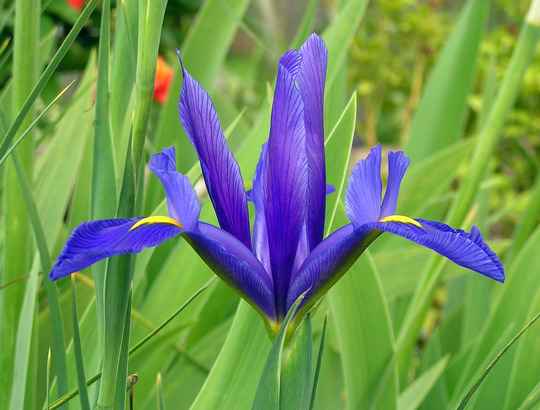Introduction
White begonias are beautiful and easy-to-grow plants that can add a touch of elegance to any garden. They come in a variety of shapes and sizes, and their delicate white flowers are sure to turn heads.
Growing white begonias
White begonias are relatively easy to grow, but they do require some basic care. Here are some tips for growing white begonias:
- Choose a location that receives bright, indirect sunlight.
- Plant white begonias in well-drained soil.
- Water white begonias regularly, but do not overwater.
- Fertilize white begonias once a month during the growing season.
- Protect white begonias from frost in cold winter climates.

Table of care requirements
| Requirement | White begonia |
|---|---|
| Sunlight | Bright, indirect sunlight |
| Soil | Well-drained soil |
| Watering | Water regularly, but do not overwater |
| Fertilizing | Fertilize once a month during the growing season |
| Temperature | 65-75 degrees Fahrenheit |
| Humidity | 50-60% |
| Pests and diseases | Aphids, mealybugs, whiteflies, powdery mildew |
Troubleshooting
If your white begonias are not doing well, there are a few things you can check. Make sure they are getting enough sunlight, water, and fertilizer. You may also need to repot them if they are outgrowing their current pot.
Pests and diseases
White begonias are susceptible to a few pests and diseases, including aphids, mealybugs, whiteflies, and powdery mildew. If you see any of these pests or diseases, treat them immediately with an insecticidal soap or neem oil.
Propagation
White begonias can be propagated by stem cuttings or leaf cuttings. To propagate by stem cuttings, cut a 4-6 inch stem from a healthy plant and remove the lower leaves. Dip the cut end in rooting hormone and plant it in a pot of well-drained soil. Keep the soil moist and the cutting should root in about 4-6 weeks.
To propagate by leaf cuttings, remove a healthy leaf from a plant and cut it into 2-3 inch sections. Dip the cut end in rooting hormone and plant it in a pot of well-drained soil. Keep the soil moist and the leaf cuttings should root in about 4-6 weeks.
Additional tips about White Begonia
- White begonias can be grown indoors or outdoors.
- They are a good choice for hanging baskets or patio planters.
- White begonias are deer-resistant.
- They are also a good choice for people with allergies.
Top-Notch Guide On Plants That Repel Snakes Naturally
White Begonia Care
Table of care requirements
| Requirement | White begonia |
|---|---|
| Sunlight | Bright, indirect sunlight |
| Soil | Well-drained potting mix |
| Watering | Water regularly, but do not overwater |
| Fertilizing | Fertilize once a month during the growing season |
| Temperature | 65-75 degrees Fahrenheit |
| Humidity | 50-60% |
| Pests and diseases | Aphids, mealybugs, whiteflies, powdery mildew |
Growing white begonias indoors
If you are growing white begonias indoors, choose a location that receives bright, indirect sunlight. Avoid placing them in direct sunlight, as this can scorch their leaves. White begonias prefer a temperature of 65-75 degrees Fahrenheit. They also need high humidity, so you may need to mist them regularly or place them on a humidity tray.
Water white begonias regularly, but do not overwater. The soil should always be moist, but not soggy. Fertilize once a month during the growing season with a balanced fertilizer.
Growing white begonias outdoors
White begonias can also be grown outdoors in warm climates. Choose a location that receives partial shade. White begonias are not frost-tolerant, so bring them indoors if the temperature drops below 50 degrees Fahrenheit.
Water white begonias regularly, but do not overwater. The soil should always be moist, but not soggy. Fertilize once a month during the growing season with a balanced fertilizer.
Benefits of White Begonia
Table of benefits
| Benefit | Details |
|---|---|
| Air purification | White begonias can help to purify the air by removing toxins such as benzene, formaldehyde, and trichloroethylene. |
| Stress relief | The calming presence of white begonias can help to reduce stress and anxiety. |
| Improved sleep quality | White begonias can help to improve sleep quality by emitting oxygen at night. |
| Increased humidity | White begonias can help to increase humidity in the air, which can be beneficial for people with dry skin or respiratory problems. |
| Pest control | White begonias can help to repel pests such as mosquitoes and aphids. |
| Deodorizing | White begonias can help to deodorize the air, removing unpleasant smells such as smoke or cooking odors. |
Other benefits
- White begonias are relatively easy to care for, making them a good choice for beginner gardeners.
- They are also relatively inexpensive to purchase, making them an affordable way to add beauty and greenery to your home or garden.
- White begonias can be used in a variety of ways, including as houseplants, container plants, or cut flowers.
White Begonia Symbolism and Cultural Uses
Symbolism
White begonias are often associated with purity, innocence, and new beginnings. They are also said to symbolize love, compassion, and sympathy. In some cultures, white begonias are also seen as a symbol of death and mourning.
Cultural uses
White begonias have been used in a variety of cultural traditions throughout history. In ancient Greece, they were used as a symbol of purity and innocence. In Victorian England, they were popular funeral flowers. In China, they are associated with love and compassion.
Table of symbolism
| Symbolism | Meaning |
|---|---|
| Purity | White begonias are often associated with purity and innocence. They are said to represent a clean slate and new beginnings. |
| Innocence | White begonias are also said to symbolize innocence. They are often given to children as a way of wishing them a happy and carefree life. |
| Love | White begonias are also associated with love. They are often given as a token of affection or to express sympathy. |
| Compassion | White begonias are also said to symbolize compassion. They are often given to people who are grieving or going through a difficult time. |
| Sympathy | White begonias are also seen as a symbol of sympathy. They are often given to people who are sick or injured. |
| Death | In some cultures, white begonias are also seen as a symbol of death and mourning. They are often used in funeral arrangements or as a way of remembering loved ones who have passed away. |
Other cultural uses
- In some cultures, white begonias are used as a medicinal plant. They are said to be helpful for treating a variety of ailments, including fever, headache, and stomachache.
- White begonias are also used in aromatherapy. They are said to have calming and relaxing properties.
- White begonias are also used in flower arranging. They are a popular choice for bridal bouquets and centerpieces.
Some of the specific meanings of white begonia flowers:
- Purity: White begonias are often associated with purity and innocence. They are said to represent a clean slate and new beginnings. This makes them a popular choice for weddings, baptisms, and other events that celebrate new beginnings.
- Innocence: White begonias are also said to symbolize innocence. They are often given to children as a way of wishing them a happy and carefree life.
- Love: White begonias are also associated with love. They are often given as a token of affection or to express sympathy. This makes them a popular choice for Valentine’s Day, anniversaries, and other occasions that celebrate love.
- Compassion: White begonias are also said to symbolize compassion. They are often given to people who are grieving or going through a difficult time. This makes them a popular choice for funerals, sympathy cards, and other occasions that express sympathy.
- Sympathy: White begonias are also seen as a symbol of sympathy. They are often given to people who are sick or injured. This makes them a popular choice for get-well cards and other occasions that express sympathy.
- Death: In some cultures, white begonias are also seen as a symbol of death and mourning. They are often used in funeral arrangements or as a way of remembering loved ones who have passed away.
Ultimately, the meaning of a white begonia flower can vary depending on the individual and the context in which it is given. However, these are some of the most common meanings associated with this beautiful flower.






